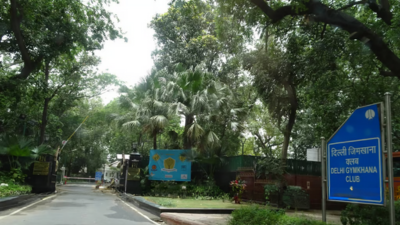The Delhi High Court, on Friday, refused to stay the termination of ‘Green Card’ privileges for the overage dependents of Delhi Gymkhana Club members in the case of Siddhaant Mohta & Ors vs. Delhi Gymkhana Club Ltd. & Ors.. Justice Sanjeev Narula observed that the concept of the ‘Green Card’ seemed to have developed informally, lacking any legal basis within the Gymkhana’s constitutional framework.
Justice Narula noted, “The Plaintiffs in this case had no initial rights or contract to claim a violation of natural justice principles. The contract concerning the Green Card is prima facie void from the beginning. As such, the Plaintiffs’ membership has not been ‘terminated’ in the usual sense; instead, it has been deemed invalid from the outset, and therefore, no rights, including those based on natural justice, can arise from it.”
Under Gymkhana Club rules, dependents of permanent members have limited access to the club between the ages of 13 and 21, with the requirement to apply for membership by the age of 22. The petitioners argued that they could not apply for membership on time due to being away from Delhi or facing other exceptional circumstances.
The petition further stated that despite surpassing the age of 22, they were later granted Green Card privileges. However, these rights were revoked for 125 individuals in 2022. The Court pointed out that granting rights through the Green Card system contradicted club rules, which strictly limited facility access to dependents aged between 13 and 21.
Justice Narula elaborated, “This provision offers temporary access to the Club for dependents, subject to nominal monthly charges. The privilege is inherently temporary, ending when the dependent turns 21. It holds no expectation of permanence, no right to preferential treatment, and no guarantee of continued access.”
The Bench further noted that acknowledging Green Card holders in the club’s bye-laws did not, by itself, legitimize the practice, especially when such issuance violated the Articles of Association (AoA), the Club’s foundational document.
Since the issuance of Green Cards to overage dependents was considered illegal and against the Gymkhana’s rules, the Court ruled that these rights could not be reinstated.
The Court also highlighted that reliance on historical practices does not alter the legal standing of the AoA as the club’s governing constitution. “Mere past practices or exceptions do not establish a vested legal right, particularly when such practices contradict the governing documents of the Club. The AoA serves as the constitution of the Club, and any policy, historical or otherwise, that conflicts with the AoA lacks legal validity,” stated the Court.
Moreover, while the Indian Contract Act recognizes implied contracts formed through practices, the Court emphasized that such practices must align with lawful obligations and cannot contradict existing frameworks.
Concluding that the termination was part of an effort to correct systemic mismanagement and align the Club’s operations with its core documents, the Court dismissed the applications for interim relief. The primary suit is scheduled for its next hearing on November 11.
Siddhaant Mohta and others were represented by advocates Amir Singh Pasrich, Mohana Malhotra, and Karan Bahmani. Senior Advocate Dinesh Dwivedi, alongside advocates Ashish Mohan, Prateek Dwivedi, Krishnam Mishra, Nishant Singh, and Sagrika Tanwar, represented Prem Shankar Jha & others. Pranati Kohli was represented by advocates Ashish Mohan, Sagrika Tanwar, and Anmol Chawla. Advocates Prateek Kumar and Raveena Rai represented the Delhi Gymkhana Club.

















